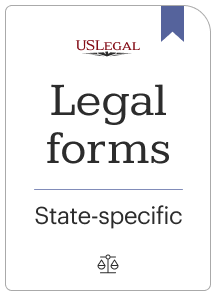

This is a multi-state form covering the subject matter of the title. Texas Motion to Enforce Settlement is a legal document filed by a party involved in a dispute to seek enforcement of a settlement agreement that has been reached between the parties. This motion is commonly used in Texas courts as a means to enforce the terms and obligations outlined in a settlement agreement when one party fails to comply with its terms. A Texas Motion to Enforce Settlement serves the purpose of asking the court to enforce the settlement agreement and hold the non-complying party responsible for their breach. This motion is typically filed when the non-breaching party has attempted to resolve the matter informally but has been unsuccessful in obtaining compliance from the other party. Keywords: Texas, Motion to Enforce Settlement, legal document, dispute, enforcement, settlement agreement, parties, terms, obligations, compliance, breach. Types of Texas Motion to Enforce Settlement: 1. Motion to Enforce a Settlement Agreement in a Civil Lawsuit: This type of motion is filed when parties in a civil lawsuit have reached a settlement, but one party fails to adhere to the agreed-upon terms. The non-breaching party can file this motion to seek judicial intervention and enforcement of the settlement agreement. 2. Motion to Enforce a Settlement Agreement in Family Law: In family law cases such as divorce or child custody disputes, parties often enter into settlement agreements to resolve their issues outside of court. However, if one party violates the terms of the agreement, the other party can file a motion to enforce the settlement agreement, requesting the court's assistance in enforcing the agreed-upon terms. 3. Motion to Enforce a Settlement Agreement in Business Disputes: Business disputes can be settled through negotiation, resulting in a settlement agreement. In case one party breaches the terms of the agreement, the other party can file a motion to enforce the settlement agreement, seeking court intervention to ensure compliance. 4. Motion to Enforce a Settlement Agreement in Employment Law: In cases related to employment disputes, such as wrongful termination or discrimination claims, parties may reach a settlement agreement to avoid protracted litigation. If one party violates the terms of the agreement, the other party can file a motion to enforce the settlement agreement with the objective of holding the breaching party accountable for their actions. In conclusion, a Texas Motion to Enforce Settlement is a legal tool utilized to ensure compliance with a settlement agreement when one party fails to uphold its obligations. It helps parties resolve their disputes in a timely and efficient manner, avoiding further legal proceedings.
Texas Motion to Enforce Settlement is a legal document filed by a party involved in a dispute to seek enforcement of a settlement agreement that has been reached between the parties. This motion is commonly used in Texas courts as a means to enforce the terms and obligations outlined in a settlement agreement when one party fails to comply with its terms. A Texas Motion to Enforce Settlement serves the purpose of asking the court to enforce the settlement agreement and hold the non-complying party responsible for their breach. This motion is typically filed when the non-breaching party has attempted to resolve the matter informally but has been unsuccessful in obtaining compliance from the other party. Keywords: Texas, Motion to Enforce Settlement, legal document, dispute, enforcement, settlement agreement, parties, terms, obligations, compliance, breach. Types of Texas Motion to Enforce Settlement: 1. Motion to Enforce a Settlement Agreement in a Civil Lawsuit: This type of motion is filed when parties in a civil lawsuit have reached a settlement, but one party fails to adhere to the agreed-upon terms. The non-breaching party can file this motion to seek judicial intervention and enforcement of the settlement agreement. 2. Motion to Enforce a Settlement Agreement in Family Law: In family law cases such as divorce or child custody disputes, parties often enter into settlement agreements to resolve their issues outside of court. However, if one party violates the terms of the agreement, the other party can file a motion to enforce the settlement agreement, requesting the court's assistance in enforcing the agreed-upon terms. 3. Motion to Enforce a Settlement Agreement in Business Disputes: Business disputes can be settled through negotiation, resulting in a settlement agreement. In case one party breaches the terms of the agreement, the other party can file a motion to enforce the settlement agreement, seeking court intervention to ensure compliance. 4. Motion to Enforce a Settlement Agreement in Employment Law: In cases related to employment disputes, such as wrongful termination or discrimination claims, parties may reach a settlement agreement to avoid protracted litigation. If one party violates the terms of the agreement, the other party can file a motion to enforce the settlement agreement with the objective of holding the breaching party accountable for their actions. In conclusion, a Texas Motion to Enforce Settlement is a legal tool utilized to ensure compliance with a settlement agreement when one party fails to uphold its obligations. It helps parties resolve their disputes in a timely and efficient manner, avoiding further legal proceedings.